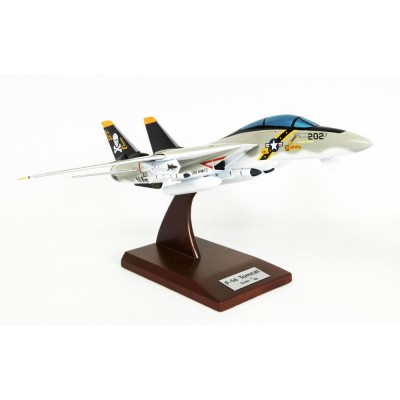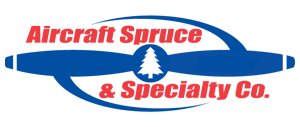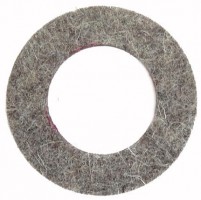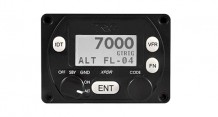FREE SHIPPING ON ORDERS OVER $350 (SOME EXCLUSIONS APPLY) | 877-4-SPRUCE
F-14A Tomcat Vf-84 Jolly Rogers Model
$317.00/Each
Part# 13-10671
MFR Model# CF014ST
MFR Model# CF014ST
Overview
|
For over three decades, the primary maritime air superiority fighter, fleet defense interceptor and tactical reconnaissance platform of the United States Navy (USN) has been the F-14 Tomcat. It is a supersonic, twin-engine, tandem seating, swing-wing aircraft manufactured by Grumman, developed after the cancellation of the General Dynamics F-111B project. It was the first of the American fourth generation teen series jet fighters that was designed incorporating the experience of air combat in Vietnam against Russian MiG aircraft. The F-14 Tomcat program was initiated when problems with the F-111B became evident and could not be resolved to the Navys satisfaction. In May 1968, funding for the F111-B was terminated. The USN specified for a new fleet air defense fighter with the primary role of intercepting Soviet bombers before they could launch missiles against the carrier group. In addition, the Navy wanted the aircraft to possess inherent air superiority characteristics. Of the five companies that submitted bids, McDonnell Douglas and Grumman were selected as finalists in December 1968. Grumman had been a partner on the F-111B, and had started work on an alternative as the project was dwindling, giving the company an edge over its competitors. In January 1969, Grumman was awarded the contract. Twenty-two months later, the F-14 had its maiden flight on December 21, 1970. Though lighter than the F-111B, it was still the largest and heaviest US fighter to ever fly from an aircraft carrier. The Tomcat entered service with the US Navy in 1972, and replaced the McDonnell Douglas F-4 Phantom II starting in September 1974. The aircraft had its first kills on August 19, 1981, when two F-14s shot down two Libyan Su-22 Fitters over the Gulf of Sidra in what became known as the Gulf of Sidra incident. On January 4, 1989, two more F-14s destroyed two Libyan MiG-23 Floggers in a second Gulf of Sidra incident. |
WARNING: Cancer and Reproductive Harm - www.P65Warnings.ca.gov. |
Q&A
Please note, Aircraft Spruce's personnel are not certified aircraft mechanics and can only provide general support and ideas, which should not be relied upon or implemented in lieu of consulting an A&P or other qualified technician. Aircraft Spruce assumes no responsibility or liability for any issue or problem which may arise from any repair, modification or other work done from this knowledge base. Any product eligibility information provided here is based on general application guides and we recommend always referring to your specific aircraft parts manual, the parts manufacturer or consulting with a qualified mechanic.








 FREE Shipping
FREE Shipping


